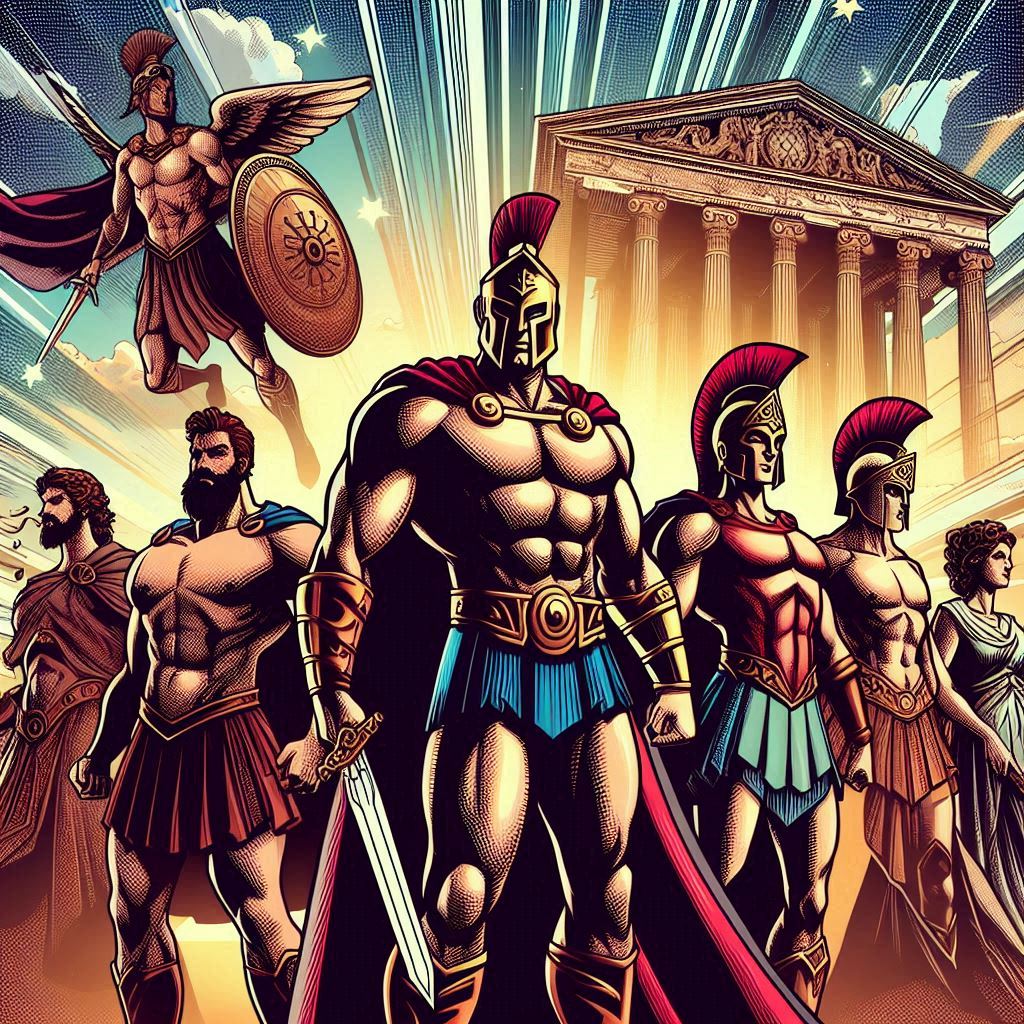Table of Contents
- Introduction: The Supernatural Powers of Greek Heroes
- Hercules: Super Strength
- Achilles: Invincibility
- Perseus: Divine Weapons
- Theseus: Supernatural Guidance
- Orpheus: Magical Music
- Jason: Divine Favor
- Odysseus: Cunning Strategy
- Bellerophon: Supernatural Flight
- Atalanta: Super Speed
- Meleager: Life Bound by Fate
- Conclusion: The Legacy of Greek Heroes
The Supernatural Powers of Greek Heroes
Greek mythology is filled with tales of heroes who possess extraordinary abilities, often granted by the gods themselves. These heroes were not just mortals; they were beings of incredible power, their stories echoing through the ages. From unmatched strength to divine favor, each hero had a unique set of supernatural abilities that set them apart from ordinary men.

Hercules: Super Strength
Fact: Hercules' strength was evident from a young age—he famously strangled two serpents sent to kill him in his crib, showcasing his divine power even as an infant.
Achilles: Invincibility
Achilles, one of the greatest warriors in Greek mythology, was known for his near-invincibility. This was a gift from his mother, Thetis, who dipped him in the River Styx as a baby, making his body invulnerable except for his heel. This invincibility made him a fearsome warrior during the Trojan War.
Fact: Achilles' only weakness was his heel, which ultimately led to his death when he was struck there by an arrow, thus coining the term "Achilles' heel" as a metaphor for a fatal weakness.
Perseus: Divine Weapons
Perseus, the legendary slayer of Medusa, was aided by the gods with supernatural weapons and protection. He was given a reflective shield from Athena, a helmet of invisibility from Hades, winged sandals from Hermes, and a magical sword. These gifts allowed him to defeat Medusa and rescue Andromeda from a sea monster.
Fact: Perseus used the reflective shield given by Athena to avoid looking directly at Medusa, allowing him to decapitate her without being turned to stone.
Theseus: Supernatural Guidance
Theseus, the hero who defeated the Minotaur in the labyrinth, was known for his bravery and intelligence. He received supernatural guidance, particularly from the god Poseidon, who was believed to be his father. With the help of Ariadne's thread, Theseus navigated the labyrinth and killed the Minotaur, freeing Athens from its tribute to Crete.
Fact: Theseus was also known for his exceptional strength, lifting a boulder under which his father, Aegeus, had hidden a sword and sandals, signifying his royal lineage.

Orpheus: Magical Music
Orpheus was a legendary musician and poet whose music had supernatural power. His melodies could charm anyone, including animals, plants, and even gods. Orpheus's music was so powerful that he almost succeeded in bringing his wife, Eurydice, back from the underworld, convincing Hades and Persephone to let her go.
Fact: Orpheus’s music was said to be so enchanting that it could move inanimate objects, causing trees and stones to follow the sound of his lyre.
Jason: Divine Favor
Jason, the leader of the Argonauts, was favored by the gods in his quest for the Golden Fleece. He received guidance and assistance from various deities, including Hera and Athena, which helped him navigate the dangerous journey with his crew. The Golden Fleece itself was a supernatural artifact that brought prosperity and healing.
Fact: Jason’s quest was not only a physical journey but also a test of leadership and cunning, as he successfully overcame numerous challenges set by King Aeetes of Colchis.
Odysseus: Cunning Strategy
Odysseus, the hero of Homer’s epic The Odyssey, was renowned for his cleverness and cunning strategies. His intellect was his greatest supernatural ability, often receiving divine assistance from Athena, who favored him. Odysseus's wit helped him escape numerous perils, including the Cyclops Polyphemus, the Sirens, and the suitors in Ithaca.
Fact: One of Odysseus’s most famous feats was the invention of the Trojan Horse, which led to the fall of Troy and ended the Trojan War.
Bellerophon: Supernatural Flight
Bellerophon, a hero known for taming the winged horse Pegasus, was granted the ability to fly. With Pegasus, he defeated the fire-breathing Chimera, a fearsome creature with the body of a lion, the head of a goat, and the tail of a serpent. Bellerophon’s flight on Pegasus symbolized the hero’s ability to rise above the mortal realm.
Fact: Bellerophon’s hubris led him to attempt to fly to Mount Olympus, the home of the gods, but Zeus struck him down, causing him to fall to earth and live the rest of his life as a cripple.

Atalanta: Super Speed
Atalanta, a renowned huntress and warrior, was blessed with supernatural speed. She was known for her ability to outrun any man in a footrace, a skill that she used to avoid marriage by challenging her suitors to a race. Her speed was also crucial during the Calydonian Boar hunt, where she was the first to draw blood from the beast.
Fact: Atalanta’s speed was so unmatched that she only lost a race when her suitor, Hippomenes, used golden apples given by Aphrodite to distract her, allowing him to win.
Meleager: Life Bound by Fate
Meleager, a hero known for his role in the Calydonian Boar hunt, had a life bound by supernatural fate. His life was tied to a magical log, which the Fates declared would determine his lifespan. As long as the log remained unburned, Meleager would live. However, after a tragic series of events, his mother Althaea, in a fit of rage, threw the log into the fire, causing Meleager’s death.
Fact: Meleager was one of the Argonauts and was famed for his bravery and combat skills, particularly during the hunt for the Calydonian Boar, where he played a crucial role in the beast's demise.
Conclusion: The Legacy of Greek Heroes
The heroes of Greek mythology, with their supernatural abilities and extraordinary feats, continue to inspire and captivate us. Their stories not only entertain but also offer insights into human nature, the divine, and the enduring struggle between fate and free will. These legendary figures remind us of the timeless appeal of heroism and the power of myth in shaping our understanding of the world.
Interested in Greek mythology and history ? Click here

